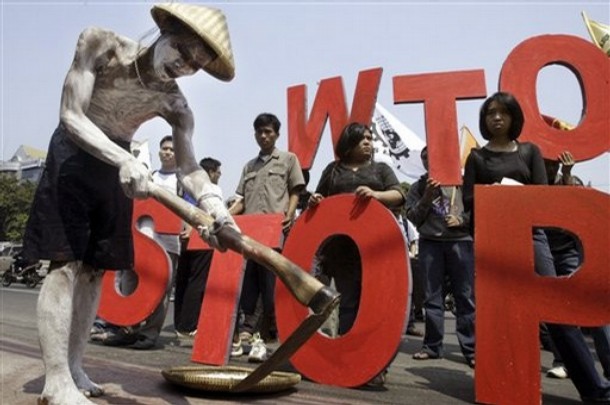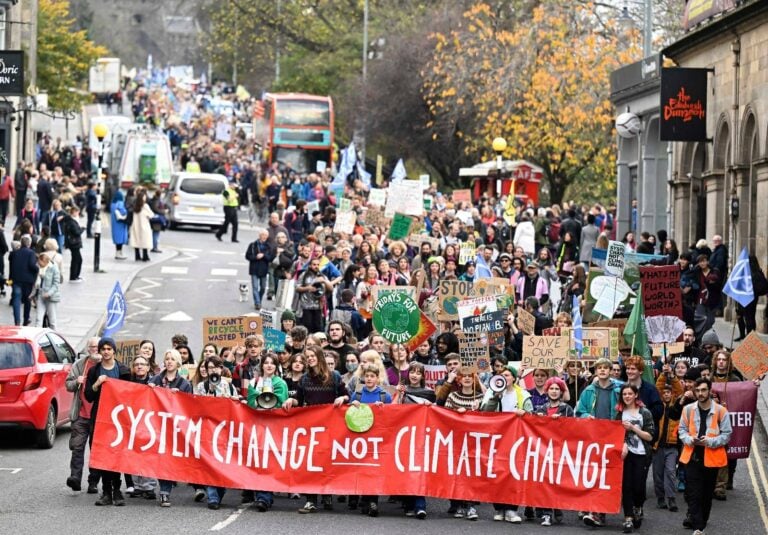
The financial crisis does not justify a WTO deal
Many political leaders of the G-20 have been calling for the conclusion of the ‘Doha Round’ negotiations in the World Trade Organisation (WTO) as a solution to the financial crisis. However, they seem unaware of the implications of liberalisation and deregulation as negotiated in the agreement, especially in the financial sector.
A high official of the European Commission said that “of course” the Doha Round will negotiate liberalisation of financial services. The European countries argue that WTO rules prevent “protectionist measures”, closing of borders, and beggar-thy-neighbour policies, which led to the economic depression in the 1930s and the consequent wars.
In three papers (see below) the Our World is Not for Sale network (OWINFS), supported by SOMO, explains the negative implications of a possible WTO deal. Extreme deregulation and liberalisation of financial services is part of the ongoing negotiations to expand the WTO’s General Agreement on Trade in Services (GATS). Already, GATS rules impose many restrictions on governmental regulation in the financial service sector. The terms of these agreements restrict many WTO member countries from reforming their financial sector so as to remedy the financial, economic, environmental, food and social crises now growing, and from ensuring that finance is directed towards the transformation to sustainable societies. Liberalisation of financial services under GATS that include an extreme deregulatory agenda means for example that banks can expand worldwide, become too big to fail, and then require bailouts by public funds. Bilateral and regional free trade agreements include similar and additional problems.
The extreme deregulation and market opening by FTAs and GATS allowed the financial industry to expand worldwide, to operate speculative financial products and freely invest in companies and projects that are socially and environmentally disruptive. In order to stop the financial sector’s contribution to the world’s food, climate/environmental and social crises the GATS and FTA negotiations and agreements must be stopped and reversed, argues the OWINFS-network. This would be a concrete step to shift finance to productive rather than speculative or unsustainable activities and should be part of the current official discussions about reforms of the financial sector and avoid lip service to more sustainability.
Related news
-
Why share buybacks are bad for the planet and peoplePosted in category:Opinion
 Myriam Vander StichelePublished on:
Myriam Vander StichelePublished on: Myriam Vander Stichele
Myriam Vander Stichele -
 The trillion-dollar threat of climate change profiteersPosted in category:Long read
The trillion-dollar threat of climate change profiteersPosted in category:Long read Myriam Vander StichelePublished on:
Myriam Vander StichelePublished on: -
The treaty trap: The miners Published on:
 Vincent KiezebrinkPosted in category:Publication
Vincent KiezebrinkPosted in category:Publication Vincent Kiezebrink
Vincent Kiezebrink

